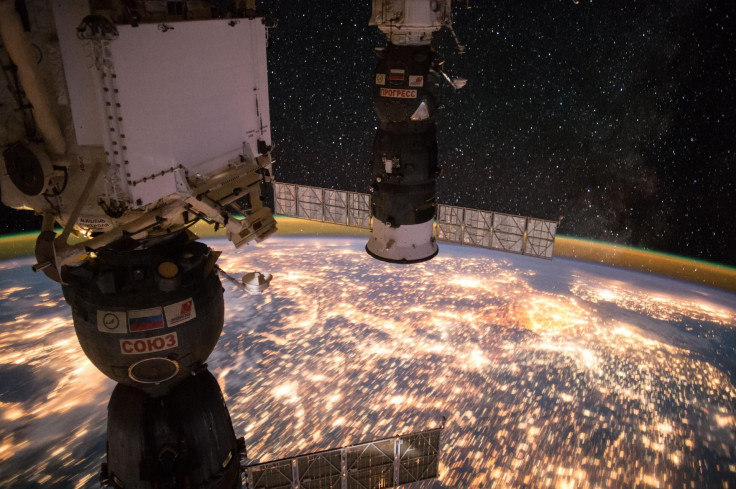Heart Health In Space: Astronaut Muscle Strength Down Because Of Blood Oxygen

Space travel is not great for your health, in part because the weightlessness affects the way your blood vessels are able to carry oxygen around your body.
Researchers took measurements of several exercising astronauts before they launched into space and then again shortly after the astronauts arrived back on Earth from a stint on the International Space Station. A study in the Journal of Applied Physiology found they lost a third to a full half of their exercise strength during their roughly six-month missions because their muscles didn’t get as much oxygen.
Read: Astronaut Worries About Pooping on the Space Station
The problem is decreased function in the heart and small blood vessels although the scientists do not yet understand how microgravity affects the way blood vessels move the oxygen-carrying red blood cells. The exact measurement that was halved during the trip, translating to a lower exercise ability, was the maximum amount of oxygen the astronauts’ bodies were able to consume while they worked out.
Kansas State University explained that oxygen capacity “shows the cardiorespiratory health of a person.” And that system’s health affects what astronauts can do.
“When your cardiovascular function decreases, your aerobic exercise capacity goes down. You can’t perform physically challenging activities anymore,” Carl Ade, an assistant professor of exercise physiology, said.
Since an astronaut’s physical strength could be the difference between life and death in an emergency in outer space or on a foreign world, Ade said finding out more about what is going on could help scientists prevent the oxygen loss, whether through exercise or medication.
“These results have practical implications for future long-duration space missions and highlight the need to resolve the specific mechanisms underlying these spaceflight-induced changes,” the Journal of Applied Physiology study said.
An added benefit is that the same solution could be used on the elderly on Earth, some of whom experience similar decreases in function.
This is not the first discovery of spaceflight weakening or otherwise altering of an astronaut’s body. When space travelers return to Earth, they have to rebuild their balance and their tolerance for gravity.
#StarWarsDay The force after a #YearInSpace. Gravity is. #Maythe4thBeWithYou pic.twitter.com/6iSZ5E17ia
— Scott Kelly (@StationCDRKelly) May 4, 2017
When they land back on the planet and are first pulled out of the spacecraft, they are carried around and placed under medical observation. The crew then has to learn to walk once again, and their necks have to support the weight of their heads for the first time in months.
See also:
© Copyright IBTimes 2024. All rights reserved.





















